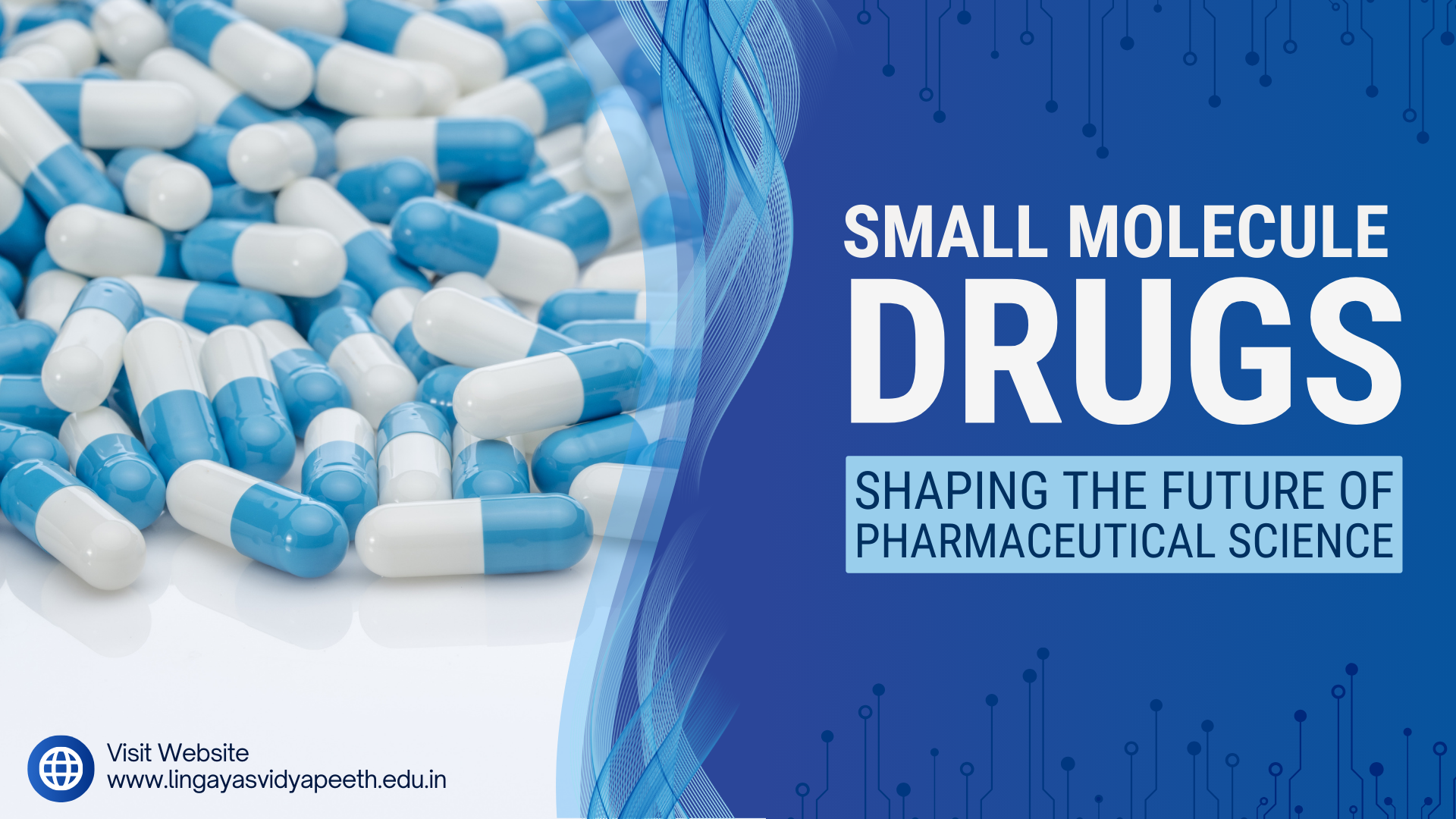Home » How Do Small Molecule Drugs Shape Modern Pharmacy?

Small molecule drugs have been a foundation of modern medicine for decades, playing a vital role in treating a wide range of diseases. These drugs, are made up of relatively small chemical compounds, interact with biological targets within the body to produce therapeutic effects.
Small molecule drugs are typically composed of organic compounds with a molecular weight of less than 1000 Daltons. They can be synthesized chemically or isolated from natural sources. These drugs work by binding to specific proteins or enzymes within the body, altering their function and ultimately influencing biological processes.
Small molecule drugs have transformed the pharmaceutical industry, offering a diverse range of therapeutic applications. They are used to treat different kind of diseases, including:
The development of new small molecule drugs is a complicated and time-consuming process. It typically involves multiple stages, which includes:
AI Become a Revolutionary Instrument for Faster Drug Discovery
Despite their success, small molecule drugs face several obstacles. These include:
To address these challenges, researchers are finding new approaches, such as:
Approach of computational drug delivery system
In conclusion, small molecule drugs are essential tools in the fight against diseases. Their versatility, accessibility, and ongoing development make them an indispensable component of the pharmaceutical industry. As research and technology continue to advance, we can expect to see even more innovative and effective small molecule drugs in the future.
If you’re passionate about studying a bachelor’s degree in pharmacy, then hands down, Lingaya’s Vidyapeeth is the best option for you, Lingaya’s Vidyapeeth is one of the best pharmacy colleges in Delhi NCR, with a strong emphasis on hands-on experience, research opportunities, modern labs and experienced faculty, students gain vital skills and knowledge essential for success in the field.
From
Pooja Dhama
Assistant Professor
School of Pharmacy
Lingaya’s Vidyapeeth
Top Colleges in Faridabad for Pharmacy
RECENT POSTS
CATEGORIES
TAGS
Agriculture Agriculture future AI Architecture artificial intelligence BA English BA Psychology BTech CSE BTech Engineering Business management career Career-Specific Education career guide Career Opportunities career option career scope Civil engineering commerce and management Computer Science Computer science engineering Data science degree education Engineering Engineering students English Literature english program Exam tips Fashion Design Fashion design course Higher Education Journalism journalism and mass communication law Law career Machine Learning MA Psychology Master degree mathematics MBA Mechanical Engineering Pharmacy Psychology Research and Development students
University Address: Nachauli, Jasana Road, Faridabad, Haryana
Toll Free: 1800-120-4613
Mobile : 8447744303 | 8447744304 | 8447744306 | 8447744309
Address: C-72, Second Floor, Shivalik, Near Malviya Nagar,
Above HDFC Bank, New Delhi 110017
Ph.No. - 011-46570515 / 45138169 / 41755703 / +91-7303152412
Jagmani Kutir, Ground Floor, Road No-1, Rajeev Nagar,
Near Darbar Marriage Hall, Patna-800024, Bihar
Contact No: 9818352069/8130120095
Mail: [email protected]
Copyrights © 1998 - 2025 Lingaya's Vidyapeeth (Deemed To Be University). All rights reserved.
It is important to note that the following email IDs and domains are fraudulent and do not belong to our university.
LV only conducts physical/online verification of any document related to examination on the following email id: